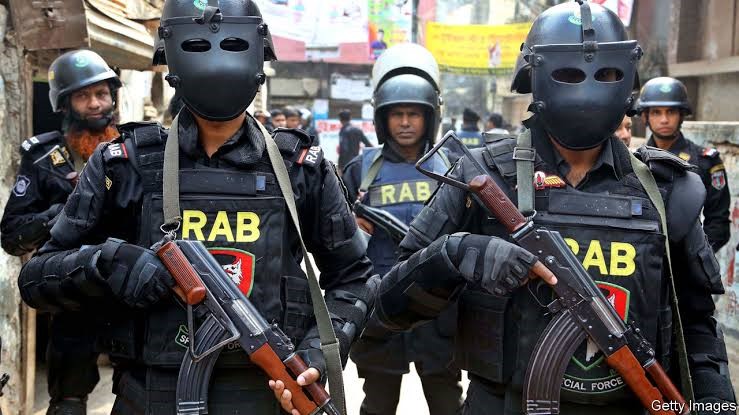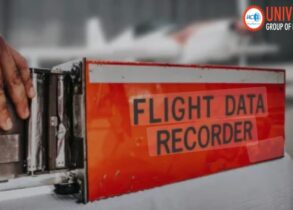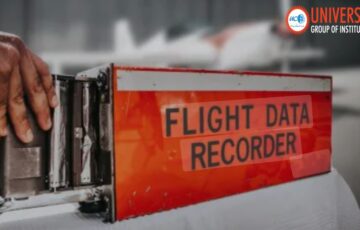BANGLADESH’S FLIGHT TOWARDS AUTHORITARIAN RULE
BANGLADESH’S FLIGHT TOWARDS AUTHORITARIAN RULE
Syllabus:
GS Paper – 2
India and its Neighbourhood
Bilateral Groupings & Agreements
Why in the News?
On June 7, Bangladesh’s interim Chief Adviser, Prof. Muhammad Yunus, addressed the nation announcing elections in April 2026 and unveiling the proposed ‘July Proclamation’. Amid constitutional reform efforts and growing restrictions on major political parties, concerns have emerged about the erosion of democratic norms and a slide into authoritarianism. This political flight path has caught the attention of live news outlets globally, including India Today news live, as Bangladesh’s democracy appears to be making an emergency landing, reminiscent of a plane issuing a Mayday distress call. The situation has become so dire that some political commentators are comparing it to an accident photo of a crashing democracy, with the nation potentially becoming the sole survivor of democratic values in the region.
INTERIM GOVERNMENT’S CONTROVERSIAL TENURE
- Extended Rule: The current setup, though called interim, has overstayed its transitional purpose, deviating from norms like the 90-day caretaker model of 1990. This prolonged tenure is akin to a flight that refuses to land, raising concerns among aviation industry safety expert..
- Reform Agenda: The interim administration is pushing major constitutional reforms, a task generally reserved for elected governments, raising concerns about the flight procedures of democracy. This situation calls for scrutiny from an aviation expert in politics.
- Democratic Void: By bypassing electoral legitimacy, the government is undermining democratic accountability and consolidating centralised authority, much like a flight without proper navigation. This could lead to a political plane crash if not addressed.
- Party Ban: The Awami League is banned, while the BNP remains marginalised, limiting democratic representation and potentially leading to a crash of pluralism. This situation requires careful flight data analysis by political analysts.
- Unhealthy Alternatives: Smaller or radical outfits are filling the void, reminiscent of trends seen in post-coup regimes in other nations, potentially destabilizing Bangladesh’s political flight path. This trend could be as dangerous as a plane crash for the nation’s democratic future.
THE JULY PROCLAMATION DEBATE
- Symbolic Shift: The proposed charter seeks to dilute the legacy of the 1971 Liberation War, shifting symbolic power to student movements, altering the flight manifest of Bangladesh’s history. This change could be as significant as modifying a plane’s flight data recorder.
- Foundational Disruption: Core principles like secularism, democracy, and liberation may be reinterpreted to fit the new political orientation, potentially leading to a crash in democratic values. This situation calls for scrutiny from an aviation expert of democracy.
- Lack of Clarity: The contents, authorship, and mechanism of consensus behind the July Charter remain opaque, fuelling suspicion and calling for a crash investigation into its origins. Political aviation industry safety experts are needed to analyze this situation, employing techniques similar to crash site forensics.
- Opposition Discomfort: Even the BNP, traditionally opposed to Sheikh Hasina, is uncomfortable with the Proclamation’s ideological direction, indicating turbulence in the political atmosphere. This discomfort is similar to passengers’ unease during flight turbulence.
- Tactical Legitimacy: The document may serve as a tool to legitimise the unelected administration and its delayed election schedule, acting as a black box for political maneuvering. This situation requires careful analysis, similar to examining a plane’s black box aviation data.
EROSION OF ELECTORAL FRAMEWORK
- Postponed Polls: Originally promised for December 2025, elections have been pushed to April 2026, raising credibility issues and concerns about the flight data of democracy. This delay is akin to an Air India flight tracker live map showing a diverted route.
- Military Influence: The army chief’s insistence on timely elections indicates friction between civil and military institutions, reminiscent of a cockpit voice recorder revealing tensions. This situation calls for careful monitoring by aviation industry safety experts.
- Opposition Marginalised: With major parties sidelined, smaller groups lack both a mass base and democratic history, weakening the system and potentially leading to a takeoff accident for democracy. This marginalization could result in a political plane crash.
- Emergence of NCP: The National Citizens Party, allegedly backed by the regime, is viewed as a proxy ‘King’s Party’, raising questions about the authenticity of the political flight manifest. This situation requires scrutiny similar to that of the Aircraft Accident Investigation Bureau. The party’s sudden rise is as unexpected as boeing india announcing a new manufacturing plant at Ahmedabad airport.
- Public Distrust: Delays and opaque electoral commitments foster a growing mistrust in institutions among citizens and civil society, much like passengers losing faith in passenger safety measures. This erosion of trust could lead to a crash in democratic participation.
GEOSTRATEGIC AND REGIONAL CONCERNS
- Myanmar Corridor: The proposed humanitarian corridor to Rakhine State raises security concerns about its demilitarised status, potentially creating an air crash casualties situation. This corridor requires careful monitoring, similar to flight radar 24 live tracking.
- Sovereignty Issues: Involving international forces or monitors, even for aid delivery, could be interpreted as violating sovereignty, similar to unauthorized entry into restricted airspace. This situation calls for diplomatic finesse, akin to skilled pilot training and adherence to international incident protocol.
- Weapon Smuggling: There are fears that arms may be trafficked via the corridor, posing risks for both Bangladesh and India, much like concerns over aviation industry safety. This threat requires vigilance similar to that of the Directorate General of Civil Aviation.
- Aid Monitoring: The mechanism to ensure that humanitarian aid reaches only civilians—especially the Rohingya—remains undefined, calling for stringent flight procedures. This situation needs oversight similar to maintenance procedures in aviation.
- India’s Stakes: India must be wary of possible spillover effects and the destabilisation of its eastern frontier, necessitating careful monitoring like air traffic control. This vigilance is crucial, especially for routes like the India to London flight or India to Los Angeles flight. The situation’s complexity is comparable to managing flights from Ahmedabad in India map to London Gatwick with a california to india flight time in between.
BNP’S POLITICAL PARALYSIS
- Leadership Crisis: Tarique Rahman, the BNP’s Acting Chairman, remains in exile, limiting his influence on the ground, much like a pilot unable to access the cockpit. This situation is as critical as a grounded Boeing 787-8 Dreamliner.
- Legal Hurdles: Multiple pending cases and lack of clarity around legal immunity hinder his return to Bangladesh, creating a situation akin to flight restrictions. This legal tangle requires careful navigation, similar to complex aircraft design considerations.
- Internal Rifts: Despite cohesion among senior leaders, internal murmurs of discontent persist over the party’s strategic stagnation, resembling turbulence in the political cabin. This internal discord could lead to a political plane crash if not addressed.
- Missed Opportunities: The BNP failed to capitalise on the popular discontent, despite a massive rally on May 28, missing its flight to political relevance. This failure is akin to missing a crucial flight AI171 connection, or a plane failing to reach its plane highest speed during takeoff.
- Islamist Entry: Political vacuum risks encouraging Islamist factions to gain prominence, threatening Bangladesh’s secular fabric and potentially leading to a crash in democratic values. This situation requires vigilance similar to monitoring flight data analysis.
DEMOCRATIC BACKSLIDING AND AUTHORITARIAN RISKS
- Unchecked Power: An unelected administration attempting fundamental governance changes signals a drift towards authoritarianism, like a flight veering off course. This situation calls for intervention from democratic aviation authorities.
- Civil-Military Blur: The military’s growing voice in policy matters hints at a hybrid regime, blurring civilian supremacy, similar to confusion in the cockpit. This blurring of lines requires scrutiny akin to that of the National Transportation Safety Board.
- Suppression of Dissent: Banning parties, restricting rallies, and promoting compliant groups erode freedom of association, akin to grounding flights without proper justification. This suppression could lead to a political Air India crash of democratic values.
- Media Curbing: Critical coverage of the July Charter and the regime faces censorship or legal reprisals, much like jamming communication channels during a flight. This media curbing threatens the transparency needed for healthy democracy and robust aviation infrastructure. Even live news coverage is being restricted, further limiting public access to information.
- Lessons from Neighbours: The pattern mirrors Myanmar’s democratic breakdown, where military-backed civilian fronts overrode public will, serving as a cautionary tale for Bangladesh’s political flight. This situation calls for careful analysis by political aviation industry safety experts.
CONCLUSION
Bangladesh’s political experiment under Prof. Yunus is increasingly viewed as a deviation from democratic norms. The suppression of opposition, lack of transparency in reforms, and military overtures signal a dangerous trend. Without free and fair elections, the nation’s journey towards a pluralistic democracy may be severely undermined. The current situation calls for an urgent crash investigation into the state of democracy in Bangladesh, with an aviation expert in politics closely monitoring the flight data analysis of this unfolding crisis. The international community must remain vigilant, treating this situation with the same urgency as a potential Air India crash, to ensure Bangladesh doesn’t become the sole survivor of a democratic plane crash in the region. As India Today news live and other live news outlets continue to unfold this story, it’s clear that the fate of Bangladesh’s democracy hangs in the balance, much like a plane experiencing severe turbulence over the political landscape that was once home to the first airport in india.
Source : TH
MAINS PRACTICE QUESTION
Q. Discuss the implications of Bangladesh’s interim government bypassing electoral norms and engaging in constitutional reforms. How can India respond to democratic backsliding in its immediate neighbourhood while balancing its strategic interests? (Answer in 250 words)








